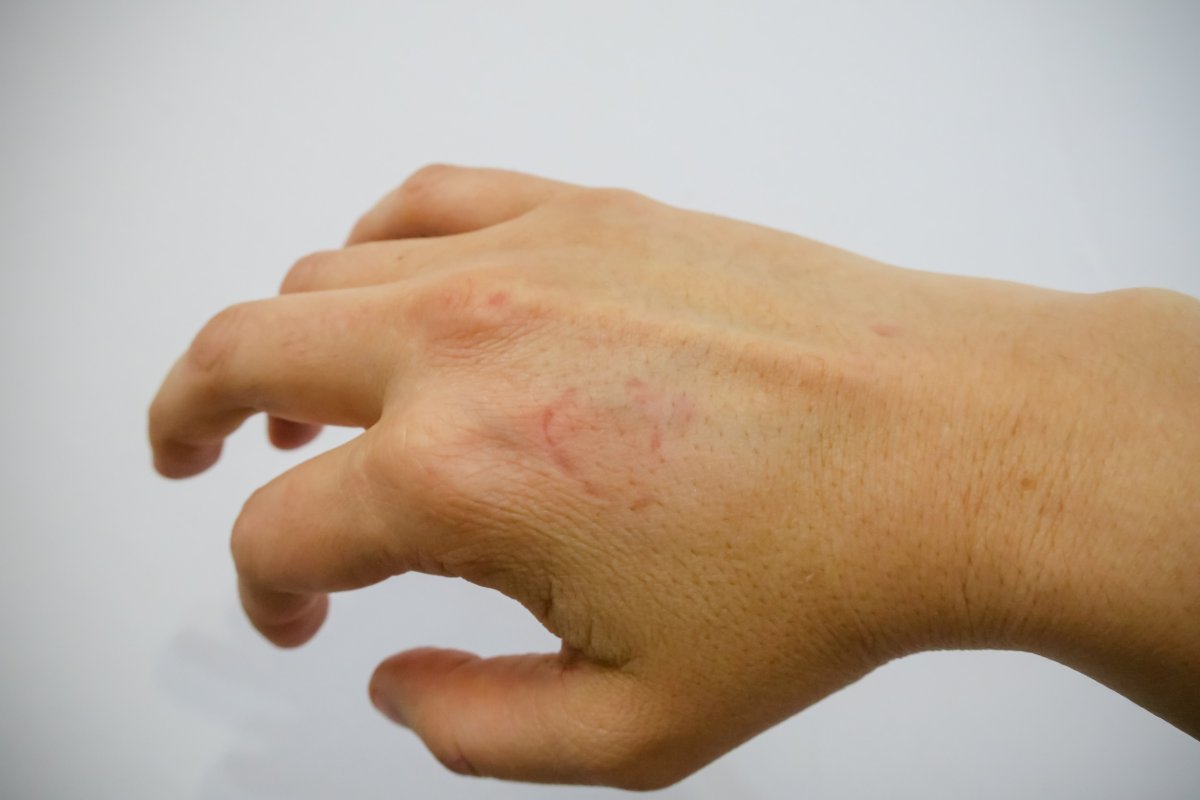A man contracted a life-threatening, flesh-eating infection after breaking up a fight at a family gathering, leading to a large amount of his thigh being removed to save his life.
Donnie Adams, a 52-year-old from Tampa Bay in Florida, noticed a quarter-sized bump on his left thigh a few days after he had been bitten by a family member during a scuffle. Having initially gone to HCA Florida Northside Hospital in St. Petersburg on February 14 for a tetanus shot and antibiotics, his condition worsened. "By the third day, my leg was very sore. I couldn't walk, it was very warm and very painful," Adams told local news outlet WFLA.
During the subsequent emergency surgery, Adams was found to have necrotizing fasciitis, a flesh-eating bacterial infection, which required around 70 percent of the tissue of his left leg between his knee and groin to be cut out.

"They assessed my wound and it was very horrific," said Adams. "It was unbelievable. But in my mind, I just had to get through whatever this was."
"If I would've waited until the next day after our second visit, there was a chance I would've lost my leg," said Adams.
The unusual aspect of Adams' case is that the infection arose from a human bite. This is because the human mouth is actually teeming with bacteria, which can cause infections to be spread via the saliva if one person breaks the skin of another using their teeth.

"A human bite is dirtier than a dog bite as far as the kinds of bacteria that grow," Dr. Fritz Brink, an osteopathic physician at HCA Florida who treated Adams, told The Tampa Bay Times. "Normal bacteria in an abnormal spot can be a real problem."
Adams had a lucky escape from the infection, but lost a large amount of his leg in the process of removing the infected flesh.
"You're torn between being as aggressive as you can be to stop the infection from spreading and leaving as much tissue behind so that it won't take two years to heal," Brink said.
Adams spent nearly three weeks in hospital, and faced a further six months of recovery time.
"I would've never imagined that a human bite would turn into something so horrific as a flesh-eating bacteria," Adams said.
Adams said that he didn't even realize he had been bitten during the fight.
Necrotizing fasciitis is an infection from bacteria, usually group A strep or Vibrio bacteria, like Vibrio vulnificus, that can rapidly spread within the body. These bacteria usually enter the body via wounds or bites, and can cause the flesh to begin to rot away the soft tissue beneath the surface of the skin, including fat, connective tissue and muscle, putting the patient at a high risk of sepsis.
According to the Centers for Disease Control and Prevention (CDC), around one in five people with the infection die, usually rapidly after becoming infected. Thankfully, necrotizing fasciitis is rare: only around 0.4 people per 100,000 are infected each year in the United States.
Do you have a tip on a science story that Newsweek should be covering? Do you have a question about necrotizing fasciitis? Let us know via science@newsweek.com.
Uncommon Knowledge
Newsweek is committed to challenging conventional wisdom and finding connections in the search for common ground.
Newsweek is committed to challenging conventional wisdom and finding connections in the search for common ground.
About the writer
Jess Thomson is a Newsweek Science Reporter based in London UK. Her focus is reporting on science, technology and healthcare. ... Read more





